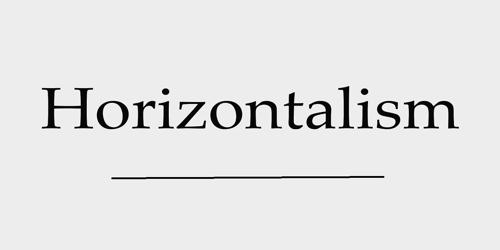Horizontalism is a social relationship that implies, as its name suggests, a flat plane upon which to communicate. It is an approach to money creation theory pioneered by Basil Moore which states that private bank reserves are not managed by central banks. It was first used by the movements that emerged in Argentina in the wake of the 2001 economic crisis. It has since been adopted by social movements around the globe and is used to describe new forms of social relationships that are developing in place of traditional methods of political organizing. Instead, reserves will be provided on demand at the bank rate set by the central bank. This inverts the mainstream textbook money multiplier relationship between deposits and loans since loans are said to cause deposits which in turn cause reserves.
Horizontalism is a political or social theory or system that advocates the equitable distribution of power in a society. It encapsulates the shifting visions of justice upon which many of the new global movements are grounded—from Spain, Greece, Bosnia, and Brazil, to the U.S. Occupy movement. Rather than an ideology or political program that must be met so as to create a new society or new idea, it is a process.
Horizontalidad does not just imply a flat plane for organizing, or non-hierarchical relationships in which people no longer make decisions for others. It is a positive word that implies the use of direct democracy and the striving for consensus, processes in which everyone is heard and new relationships are created.
Horizontalism influenced monetary circuit theorists to develop the endogenous money approach that was already nascent within post-Keynesian academic thought. Horizontalidad necessarily implies the use of direct democracy and the striving for consensus, processes in which attempts are made to let everyone be heard. It states that increasing demand for loans by bank customers leads to banks making more loans and creating more deposits, without regard to the size of the bank’s available reserves. Thus credit money created by private banks can be seen to be leveraging those reserves without the guidance of a particular leverage ratio, i.e. horizontal leveraging. Horizontalism is a process is therefore ever-changing, and at its best, it forms the base for participatory, engaged democracy.
















